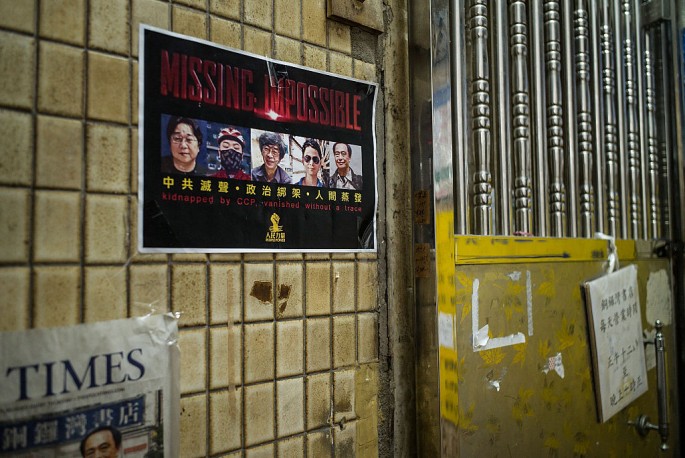Gui Minhai, the Hong Kong bookseller who cleared China of rumors that he was abducted in Thailand in a TV confession, was really abducted. He and four other booksellers were only forced by Chinese agents to confess of illegal trading.
On Thursday, Lam Wing Kee, one of the five who disappeared in 2015 and turned up in China, said at a news conference that the confession they made in February was scripted, BBC reported. “They gave me the script. I had to follow the script. If I did not follow it strictly, they would ask for a retake,” he recalled.
The speculations were that they were abducted and detained in China for selling 4,000 unauthorized copies of books, through Mighty Current publishing house, to 380 mainland customers of a book about Chinese President Xi Jinping.
Lam Wing Kee disclosed that he was arrested in October in Shenzhen and taken to Ningbo via a 14-hour rail travel where he was locked alone in a small room and repeatedly questioned about selling of banned books in mainland China. During the time that he was held, Lam Wing Kee could not call his family or a lawyer, while he was tracked 24 hours a day, Reuters reported.
He was eventually transferred to Shaoguan City in Guangdong Province, and recently released. In the past two days, the bookseller deliberated if he would make public his ordeal which was a violation of his rights or face risks to his personal safety and that of his girlfriend in China.
After his statements were published, Global Times, a mainland newspaper controlled by the government, came out with an editorial which stated that while Hong Kong’s laws are different from China, residents of the special administrative region must respect the mainland’s political system. It stressed that taking action which could “harm the state security and the political stability in mainland China” is not right.
However, even the pro-Beijing editorial eventually was removed from the daily’s website by Friday morning, a victim to China’s strict censors, reported Time.



























